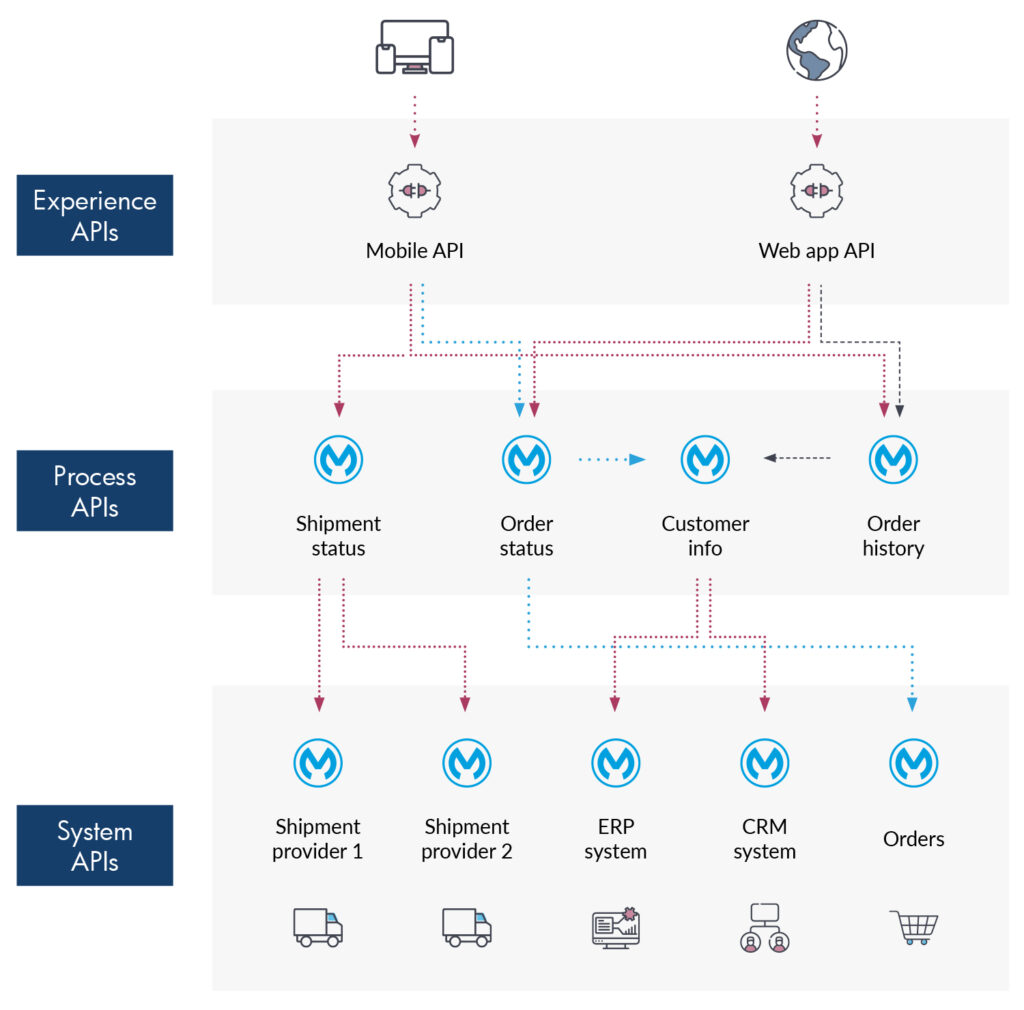The growth of eCommerce was not a temporary pandemic solution for retailers. It accelerated an already present shift for retailers and shoppers alike, with 73% of households now shopping online. This new medium for sales brings the potential of reduced need for brick-and-mortar investments and opens the door to new markets of customers and an overall broader reach for their products and services.
However, e-commerce represents a tipping point for retailers no longer relying on their technology simply to host a website but now need systems to cater to and connect the complex digital interactions of their customers with back-office, inventory and in-store processes to meet demand and customer experience expectations.
To bridge the gap between the digital and physical fronts of retail, IT must use technology to integrate its data and processes to meet the expectations of today’s customers.
API-led connectivity is an integrated approach that allows companies engaged in eCommerce to unlock data, services, and other assets and surface them onto a platform for broader consumption by the business.
Unlike point-to-point integration, API-led connectivity avoids the duplicative, time-consuming work associated with custom code by leveraging reusable APIs.

System APIs expose data across core systems of record, including OMS, CRM, or ERP systems. They enable shared data consumption throughout the enterprise and avoid duplicate work or code.

Process APIs consume and orchestrate data exposed by System APIs and represent common business processes that interact with and shape data. They exist independently of the source systems from which the data originates.

Experience APIs are a way to transform data and services so that their intended audience consumes them efficiently. Designed with developers in mind, they abstract the underlying data and services from the complexity of downstream systems.



